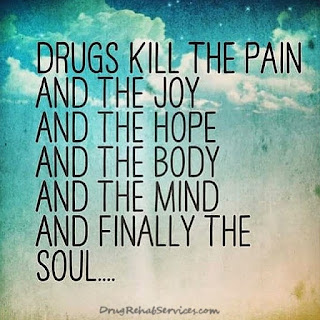Dual Diagnosis Treatment Programs
This service is dedicated to those in need of a Dual Diagnosis Treatment Program for Addiction. Call for free help now. 1-800-513-5423
Dual Diagnosis treatment programs are tailor made to specifically address the co-occurring mental and substance abuse disorders. Many of the dual diagnosis treatment centers treat the individual using an integrated approach working with both the psychological and alcohol or drug dependency. Dual Diagnosis treatment programs are a relatively new approach to treat addiction and has gained acceptance and significant results in treatment co-occurring substance disorders.
Facts
The need for dual diagnosis treatment programs is growing as we discover that there is an underlying condition that needs to be handled at the same time while treating the addiction problem.
There is significant evidence that shows that almost one third of alcohol abusers and almost half of all drug addicts have a co-occurring underlying disorder.
If we look at the general population, persons with a psychological disorder are twice as likely to self medicate and developed either an addiction to alcohol or drugs.
Dual diagnosis patients will have a harder time in dealing with addiction than patients that do not have a co-occurring mental disorder. Individuals who have a mental illness and a co-occurring substance disorder have higher rates of suicide and homelessness.
Brief history of Dual diagnosis treatment programs
Dual diagnosis treatment interventions and "integrated" programs that truly adapted to the needs of severely mentally ill chemical abusers (MICA) began in 1984 (Gigliotti,1986, Sciacca 1987a,1987b) in a New York State outpatient psychiatric facility. In 1985 these integrated treatment programs were implemented across multiple program sites (Sciacca,1987b). Concurrently, treatment and program elements were taught through training seminars in New York as well as nationally. Early articles by Gigliotti, 1986 and Sciacca, 1987a, 1987b, outlined these processes and documented their starting dates. In September, 1986, the New York State (NYS) Commission on Quality of Care (CQC) released the findings of eighteen months of research. Its report (Sundram, Platt, Cashen, 1986) described the detachment and downward spiral of dual diagnosed consumers who were bounced among different systems with " no definitive locus of responsibility." As a result, Governor Cuomo designated the NYS Office of Mental Health as the lead agency responsible for coordinating collective efforts for this population. CQC proceeded to visit the dual diagnosis programs developed in 1984, and declared the treatment interventions, the training, and integrated programs to be positive solutions to the dilemmas (Gigliotti, 1986).
Form and function
For a client to succeed in a dual diagnosis program there has to be self-motivation and a desire to get better. The doctors and treatment teams must be able to work together seamlessly through a coordinated treatment approach without having to consult different departments. The approach only works through a unified effort and a co-joined treatment team.
What to look for in a dual diagnosis program
While searching for a dual diagnosis treatment program make sure that the center has all the facts regarding the client. Many times it is necessary to "wipe the slate clean", meaning that a client may need to come off of all medications first before continuing their current medication regiment. Many addicts have been put on medication by their family doctor or psychiatrist without disclosing the fact that there has been drug usage going on in the present time. Once the client has been clean and stable for 30 or so days we really see the real person and know exactly what is going on with the patient. It is at this point in treatment that a determination is made if there is a need for medications to handle the underlying addiction problem.
Help is only a phone call away our certified counselors are here to assist you in finding the best Dual Diagnosis Treatment Program
Our counselors are waiting on your call 7 days a week 24 Hours a day.
1-800-513-5423
.
Dual Diagnosis Treatment Programs help line is here to assist you. We will guide you every step of the way. Our trained and certified counselors have helped thousands of people just like you enter into a new life free of drugs or alcohol. The first step is the hardest to take, admitting that we are powerless and need help to handle the underlying addiction that has been holding us back from the life we deserve. Let your addiction become the past. Give one of our counselors a call we are here for you 24 hours a day 7 days a week.


